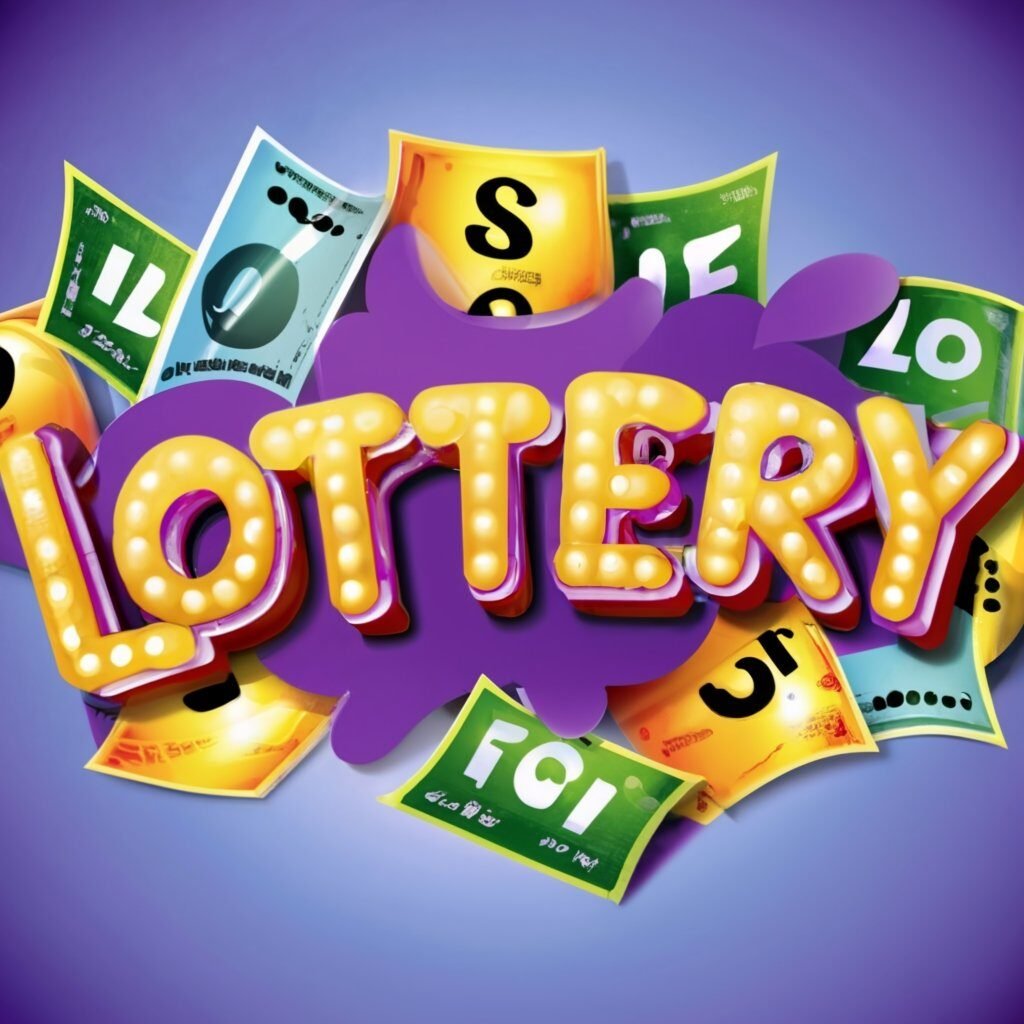Imagine a world where the simple act of buying a lottery ticket can potentially change your life forever. With the tantalizing promise of unimaginable riches, lotteries have become a global phenomenon, captivating millions of hopeful dreamers. But have you ever stopped to wonder, how does the lottery actually make money? In this article, we will unveil the intriguing mechanisms behind the lottery’s financial success, shedding light on an industry that thrives on chance and aspirations. So, buckle up and prepare to uncover the fascinating world of lottery economics.
Types of Lotteries
Traditional Lottery
The traditional lottery is the classic form of lottery that has been around for decades. In this type of lottery, participants purchase tickets with a set of numbers, and the winning numbers are randomly selected through a drawing. Traditional lotteries are usually operated by state governments and offer a variety of games with different jackpot sizes and odds of winning.
Scratch-off Lottery
Scratch-off lotteries are another popular type of lottery that offers instant gratification. Instead of waiting for a drawing, participants buy a ticket and scratch off a thin layer of the ticket to reveal whether they have won a prize. Scratch-off tickets come in various themes and prize amounts, providing a fun and quick way to potentially win some cash.
Online Lottery
With the advent of technology, online lotteries have gained popularity in recent years. These lotteries allow participants to purchase tickets and play games online without having to visit a physical retailer. Online lotteries offer convenience and accessibility to players, as they can participate from the comfort of their own homes using their computers or mobile devices.
Multi-state Lotteries
Multi-state lotteries are a collaboration between multiple state lotteries, pooling their resources to offer larger jackpots and increase the odds of winning. These lotteries often include popular games like Powerball and Mega Millions, which generate nationwide excitement and attract participants from across state borders. Multi-state lotteries frequently reach staggering jackpot amounts, providing the chance for life-changing wins.
Revenue Sources
Ticket Sales
The primary source of revenue for lotteries is ticket sales. Whether it’s the traditional paper tickets sold at physical retailers or the digital tickets sold online, the income generated from ticket sales forms the backbone of lottery funding. The more tickets sold, the higher the revenue, giving lottery organizers the ability to fund various programs and projects.
Unclaimed Prizes
Believe it or not, some lottery prizes go unclaimed. When a prize remains unclaimed within a certain timeframe, the money is returned to the lottery organization. These unclaimed funds contribute to the revenue of the lottery and are used to support future prizes and initiatives. It’s a win-win situation, as participants have the chance to win even larger prizes with the unclaimed funds.
Investment Earnings
Lottery organizations invest a portion of their revenue to generate additional income through various investment strategies. These earnings come from investing in stocks, bonds, and other financial instruments. Investment earnings help supplement revenue from ticket sales and ensure a steady flow of income for lottery initiatives.
Advertising and Sponsorships
Lotteries often partner with corporations and brands to secure advertising and sponsorship deals. These partnerships provide additional revenue streams while allowing companies to promote their brand to a wide audience. Lottery advertisements can be seen on television, heard on the radio, and displayed online. By leveraging brand partnerships, lotteries can maximize their revenue and create mutually beneficial relationships.
Ticket Sales
Purchasing Tickets
Purchasing lottery tickets is simple and straightforward. For traditional lotteries, you can visit an authorized retailer and request a ticket with your desired numbers. Scratch-off tickets can be purchased in a similar manner, with the added excitement of immediate prizes. Online lotteries offer the convenience of purchasing tickets through designated websites or mobile applications. All you need is an internet connection, and you can easily participate in the lottery from anywhere.
Price Variation
Lottery tickets are usually priced at a fixed amount, although there may be variations depending on the specific game and its prize structure. Some lotteries offer different ticket prices for various games or provide special promotions that allow participants to buy multiple tickets at a discounted rate. The price variation aims to cater to different budgets and preferences, making the lottery accessible to a wide range of players.
Sales Channels
To cater to diverse customer preferences, lotteries extend their sales channels beyond traditional brick-and-mortar retailers. In addition to physical locations, tickets can be purchased online through official lottery websites or mobile apps. This allows participants to play at their convenience, eliminating the need to visit a retailer in person. By offering multiple sales channels, lotteries can reach a larger audience and increase ticket sales.
Instant Win Games
Apart from the traditional lottery draws, many lotteries offer instant win games to provide additional entertainment and chances to win. These games are available through scratch-off tickets, where participants can instantly discover if they have won a prize by scratching off a designated area on the ticket. Instant win games offer quick excitement and the possibility of immediate rewards, making them a popular choice among lottery enthusiasts.
Unclaimed Prizes
Definition
Unclaimed prizes refer to lottery winnings that have not been claimed by the winners within a specific period of time. This can occur when participants forget to check their tickets, lose their tickets, or simply never come forward to claim their prize. Unclaimed prizes can range from small amounts to substantial sums, depending on the game and the prize won.
Percentage of Unclaimed Prizes
The percentage of unclaimed prizes varies depending on the lottery and the specific game. Generally, the percentage of unclaimed prizes is relatively low, as many participants diligently check their tickets and claim their winnings. However, even a small percentage of unclaimed prizes can contribute significantly to the revenue of a lottery and allow for additional funding for future prizes and initiatives.
Reversion Periods
Lotteries establish reversion periods, which determine the amount of time winners have to claim their prizes. These periods typically range from a few months to a year, depending on the jurisdiction and the prize amount. If a prize remains unclaimed after the designated reversion period, it is returned to the lottery organization and used for various purposes, including funding future prizes and charitable programs.
Distribution Methods
When unclaimed prizes are redistributed, lotteries use various methods to ensure fairness and transparency. Some lotteries hold special drawings, giving participants another chance to win from the pool of unclaimed prizes. Others evenly distribute the unclaimed funds across subsequent games, increasing the prize amounts for future winners. The distribution methods vary among lotteries, but they all aim to utilize unclaimed funds in a beneficial and responsible manner.
Investment Earnings
Allocation of Funds
Lottery organizations carefully allocate a portion of their revenue to investment activities. These funds are set aside for investment purposes and managed by financial experts who strive to generate additional income for the lottery. The allocation of funds is crucial, as it ensures that the lottery can operate sustainably and continue funding its initiatives in the long term.
Investment Strategies
Lotteries employ various investment strategies to make the most of their allocated funds. These strategies may include investing in stocks, bonds, real estate, or other financial instruments with the goal of maximizing returns. Investment professionals analyze market trends and make informed decisions to grow the investment portfolio and generate additional revenue for the lottery organization.
Interest and Dividends
One of the primary ways lotteries earn investment income is through interest and dividends. When funds are invested, they accrue interest over time, and stocks may pay dividends to shareholders. Lottery organizations utilize these earnings to supplement revenue from ticket sales and support the funding of various programs and initiatives.
Reinvestment Policies
Lottery organizations often have reinvestment policies in place to ensure consistent growth of their investment portfolio. Instead of distributing all investment earnings as income, a portion is reinvested to further grow the funds. This approach allows lotteries to accumulate wealth and generate even more revenue in the future, ultimately benefiting both the organization and the community it serves.
Advertising and Sponsorships
Leveraging Brand Partnerships
Lotteries collaborate with corporations and brands to leverage their marketing capabilities and expand their advertising reach. By partnering with well-known brands, lotteries can reach a broader audience and create engaging campaigns that resonate with participants. Brand partnerships also provide financial support through sponsorships, contributing to the overall revenue of the lottery.
Sponsorship Opportunities
Lotteries offer attractive sponsorship opportunities to companies looking to increase their brand visibility. Sponsors gain exposure through lottery advertisements, events, and other promotional activities. Lotteries tailor sponsorship packages to meet the specific needs and goals of the sponsors, ensuring mutually beneficial arrangements and enhancing their revenue streams.
Television and Radio Commercials
Television and radio commercials are powerful advertising tools that lotteries utilize to create awareness and generate excitement. Lotteries often produce creative and memorable commercials that capture the attention of viewers and listeners. These commercials highlight the potential rewards of playing the lottery and encourage people to participate, ultimately driving ticket sales and boosting revenue.
Online Advertising
In this digital age, lotteries recognize the importance of online advertising to reach a larger audience. They invest in online campaigns, including banner ads, targeted social media promotions, and search engine marketing. By strategically placing advertisements across various online platforms, lotteries can engage potential participants and increase ticket sales, thereby generating more revenue.
Regulation and Taxes
Government Oversight
Lotteries are subject to government oversight to ensure fairness, transparency, and responsible operation. Regulatory bodies oversee the activities of lotteries, enforce compliance with laws, and protect the interests of participants. Through regulatory oversight, governments strive to maintain public trust in lotteries and uphold the integrity of the industry.
Lottery Regulations
Specific regulations govern different aspects of lottery operations, including ticket sales, prize distribution, advertising, and responsible gaming practices. These regulations aim to create a level playing field for participants, prevent fraudulent activities, and safeguard the interests of all stakeholders. Lotteries adhere to these regulations to maintain their licenses and ensure the integrity of their games.
Lottery Taxes
Lotteries generate substantial revenue, and a portion of that revenue is allocated to government coffers through taxes. Lottery taxes vary depending on the jurisdiction, and the funds are typically earmarked for specific purposes, such as education, infrastructure, or healthcare. By levying taxes on lotteries, governments can generate additional income for public service programs and initiatives.
Distribution of Proceeds
The distribution of lottery proceeds depends on the regulations and policies set by each jurisdiction. In many cases, a significant portion of the revenue is used to fund public education programs. Lotteries contribute to scholarships, grants, and other educational initiatives, empowering individuals and communities through increased access to education. Additionally, lottery proceeds may be allocated to other sectors, such as healthcare, environment, and infrastructure, depending on governmental priorities and the needs of the society.
Social Impact
Funding Public Education
Lotteries play a vital role in funding public education systems. The revenue generated from lottery sales contributes significantly to educational programs, scholarships, and infrastructure improvements. By investing in education, lotteries empower individuals with the knowledge and skills necessary for personal and professional success, ultimately benefiting society as a whole.
Contributing to State Budgets
Lotteries also make substantial contributions to state budgets. The revenue generated from lotteries eases the burden on taxpayers by funding various government programs and services. Lotteries provide a consistent and reliable source of income, enabling states to invest in healthcare, social welfare, transportation, and other essential sectors without solely relying on traditional tax revenues.
Supporting Charitable Programs
Lotteries often support charitable organizations and initiatives that make a positive impact on society. They allocate funds to charitable programs, community development projects, and initiatives aimed at addressing social issues. By partnering with charitable organizations, lotteries extend their reach beyond prize payouts and welfare programs, actively contributing to the betterment of communities.
Promoting Responsible Gaming
Lotteries prioritize responsible gaming practices and take measures to prevent the negative consequences of excessive gambling. They promote responsible gaming initiatives, educate the public about the risks and signs of problem gambling, and provide resources for support and counseling. By promoting responsible gaming, lotteries ensure that playing the lottery remains an enjoyable and safe form of entertainment.
Lottery Scams and Fraud
Common Scam Techniques
Lottery scams and fraud are unfortunately prevalent, targeting unsuspecting individuals with fraudulent claims of lottery winnings. Common scam techniques include fake notifications of winning tickets, requests for personal information or payment to claim prizes, and manipulated drawings. It is important to be vigilant and skeptical of any unsolicited communication regarding lottery winnings to avoid falling victim to these scams.
Preventing Fraudulent Activities
Lotteries employ sophisticated security measures to prevent fraudulent activities. They use advanced encryption technology and secure payment gateways to protect participants’ personal and financial information. Lotteries also conduct regular audits and employ stringent protocols to ensure the fairness and integrity of their games, preventing fraudsters from manipulating the outcomes.
Educating the Public
Lottery organizations actively engage in public awareness campaigns to educate participants about the risks of lottery scams and fraud. They provide resources, guidelines, and tips to help individuals identify and avoid fraudulent activities. By raising awareness and promoting vigilant behavior, lotteries strive to protect participants from falling victim to scams and maintain the integrity of the lottery industry.
Reporting Scams
If you encounter a lottery scam or suspect fraudulent activity, it is important to report it to the relevant authorities immediately. Most lotteries have dedicated channels for reporting scams and fraud, ensuring prompt investigations and necessary actions. By reporting scams, you not only protect yourself but also help protect others from potential financial losses and fraudulent schemes.
Future of Lotteries
Digital Transformation
The future of lotteries lies in embracing digital transformation. Online lotteries will continue to grow in popularity as technology becomes more integrated into everyday life. With advancements in mobile applications, digital payment systems, and customer engagement tools, lotteries can provide seamless and immersive experiences for players, reaching new demographics and increasing participation.
Mobile and App Integration
Lotteries will increasingly focus on mobile and app integration to cater to the evolving preferences of players. Mobile apps allow participants to easily purchase tickets, check results, and receive notifications directly on their smartphones. Integration with mobile wallets and digital payment platforms simplifies the ticket-purchasing process, making it more convenient for users. By leveraging mobile and app technology, lotteries can enhance player experiences and drive ticket sales.
Innovation in Game Formats
Lotteries will continue to innovate and introduce new game formats to keep participants engaged. These innovations may include interactive games with augmented reality or virtual reality elements, themed games tied to popular movies or sports events, and collaborative games that encourage group play. By diversifying game formats, lotteries can attract new players and provide unique experiences that go beyond traditional ticket purchasing and drawings.
Global Market Expansion
Lotteries are increasingly exploring opportunities for global market expansion. Cross-border collaborations and partnerships allow lotteries to pool resources, offer larger jackpots, and attract participants from different countries. With the use of technology, such as blockchain, international lotteries can ensure transparency and fairness, creating a global ecosystem that offers exciting opportunities for players worldwide.
In conclusion, lotteries generate revenue through ticket sales, unclaimed prizes, investment earnings, and advertising partnerships. Ticket sales form the primary source of income, catering to participants through various purchasing options. Unclaimed prizes contribute to revenue when winners fail to claim their prizes within a specified period. Investment earnings supplement revenue through strategic financial investments. Advertising partnerships offer additional income while promoting brand visibility. Lotteries also have social and economic impacts, funding public education, contributing to state budgets, supporting charitable programs, and promoting responsible gaming. However, lottery scams and fraud are prevalent, and participants must remain vigilant to protect themselves. The future of lotteries lies in digital transformation, mobile app integration, innovation in game formats, and global market expansion, providing exciting opportunities for players worldwide.



